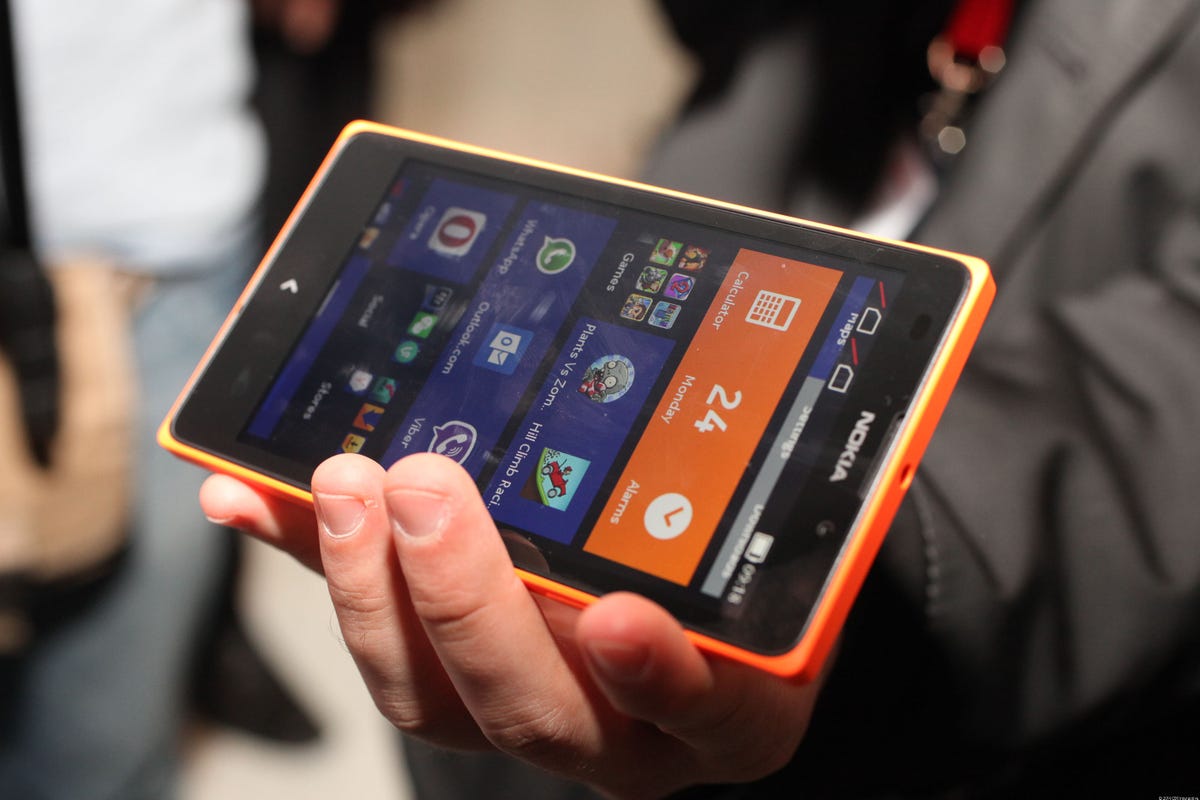
Sarah Tew/CNET
Many of the leading handset vendors have a hand — or at least a pinky — in both the Android and Windows Phone worlds.
A year ago, Motorola and Nokia were the two handset brands with the strongest allegiance to a specific operating system. But times — and the owners of those companies — are changing. Now what once seemed like an unquestioned loyalty to a particular OS has shifted to market-driven practicality.
Hello Moto, Goodbye Moto
Motorola, one of the major handset companies to embrace Android early on, became a division of Google in 2012.
Google made no secret that Motorola’s patent portfolio — rather than its handset business — was the main reason it acquired a company that once led the Windows Mobile market with its slim BlackBerry-like “Q” smartphone.
However, the Motorola handset business is now on the verge of belonging to Lenovo, which plans to use the brand to build its presence in the North American smartphone market.
Under Google, Motorola sought a way to embrace Android and build on top of it. A great example of this was the Moto X’s touchless control. Saying “OK Google Now…” would return a voice prompt asking what you’d like to do. The choices generally involved Google functions such as searching or navigating somewhere.
Recently, however, Lenovo said it will begin shipping Windows Phones. Having one of those phones bear a Motorola brand would have been unthinkable when the brand was owned by Google. And it’s hard to see how North America — where Lenovo will focus on the Motorola brand — could be an ideal market for Lenovo to launch a Windows Phone. However, the potential is there.
X marks the spot
With Nokia handsets officially under Microsoft as of late April, the last thing one would expect is a phone that uses Android. But in the months leading up to the acquisition and presumably with Microsoft’s knowledge, Nokia launched its X family of smartphones.
The Android-based X series can run most Android apps, though the ones most associated with Google — such as, Gmail, Google Maps, and its eponymous search engine — are replaced with Outlook, Bing Maps, and Bing.
The phones are somewhat of a risky bet that consumers in developing economies will show more loyalty to the design and services of what is now Microsoft than to the apps tied most closely to Google.
Questions surround the future of Nokia X handsets. On one hand, Microsoft staying with Android further fractures the Android experience at a time when Google seems to be trying to make it more uniform. On the other hand, one can only imagine that Microsoft would have even more incentive than Nokia did to get Windows Phone to the point where the X line is unnecessary.



